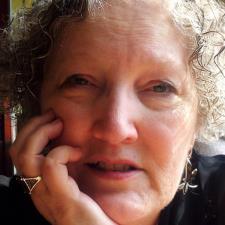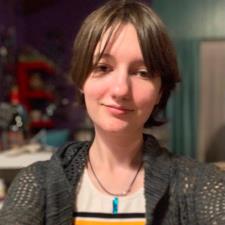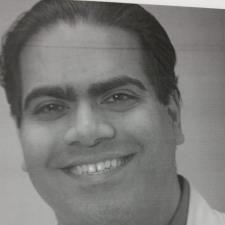1. You're right that "planted" and "attracted" are both normally verbs! Let's look at how they're functioning in the sentence:
Carefully planted decoys attracted ducks to the pond.
The subject of this sentence is "Carefully planted decoys." What did the decoys do? They "attracted ducks to the pond." The predicate involves the action, and needs at least one verb. "Attracted" is what was done, so it's a verb.
"Planted," on the other hand, describes the state of the decoys!
Adverbs are not always, but often, formed by adding -ly to the end of an adjective: in this case, the adverb is "carefully." It's modifying "planted" by telling you how they were planted! They weren't carelessly strewn about.
2. This works the (best, better) of the two shampoos.
GOSH I see the confusion on this!! You are completely right that, in general, "better" is used with two objects, and "best" is used to show the best choice among three or more options.
Here's what's tripping you up: "the best" can function as a noun. "Better," on the other hand, is only ever an adjective - so it will never be placed with an article like that. You can have "the better shampoo," but not "the better OF the two shampoos." We're looking for a word that functions like a noun - consider the sentence "This is the winner of the two shampoos." It's a bad sentence, but it demonstrates why what we want in that spot in the sentence is a noun.
For this reason, the answer is the best!
To use "better" in this context, one would say, "Between the two shampoos, this one works better."
3. The teacher needed (this/that) type of stencil.
I'm not sure how to answer this question with the information provided.
4. (This/That) was the funniest skit I had ever seen.
Use "this" to refer to things near to you, and "that" to refer to things that are physically away from you. Consider a bubble that is "near you," and a space outside of that bubble that is "the rest of the world." Use "this" to point out that you specifically mean something inside your bubble:
"I've lived in this house for five years."
"Don't use that pencil," you say, pointing to the one your sister is holding, "use this one," you say, offering one in your hand.
"I like this picture best," you say, laying your finger against the page of a photography book to point one out.
"I like that picture best," you say, referring to a picture that your friend is pointing to.
In this case, I presume you're referring to a skit on a stage or television screen. That is closer to other people/the rest of the world than it is to you. Use "that"!
(I would use "this" if I was sending my friend a link to the skit on YouTube, to indicate which specific skit I mean, and to indicate that I'm "handing" it to them. "This" is best in that case because I'm distinguishing it from all of the other skits I could have sent them!)
4. Identify the parts of speech of the underlined words. (Write noun, pronoun, adjective, adverb, preposition, conjunction, or interjection)
Because of site rules against doing your homework, I'm not going to provide answers from here on out, but I will provide help.
Identify nouns by noting if the word is a person, place, thing, or concept.
Pronouns stand in for nouns (he, she, they, it, one...)
Adjectives describe nouns.
Adverbs describe adjectives, verbs, or other adverbs.
Prepositions connect two nouns, and tell you how the two nouns relate to each other. For example: "The book is about hockey." "The book is in her backpack." It isn't always this direct, though. For example, in the sentence "I walked into the store," into is a preposition. It shows you my location relative to the store.
I'd love to do a lesson on this sometime, so I can get your feedback and figure out what questions I'm not answering in ways that make sense to you - I keep thinking that, with every answer I give! - but I hope that helps for now.
Conjunctions can be used to connect two phrases, clauses, or ideas. Common conjunctions include and, but, and or.
Interjections are something you might shout out, just for the sake of shouting something out! Only define something as an interjection if it doesn't have a better grammatical definition.
For example, I would define "Aw, rats!" as an interjection because it is something I'm just yelling in disappointment- even though "rats" are an animal, and can be a noun, I'm not really referring to the noun. I'm simply yelling a little nonsense to get across a feeling.
However, I would define "Go, go, go!" as three verbs. I'm instructing the person I'm cheering on to do something!
I am twenty-two years old and I love, to this day, the Schoolhouse Rock interjections video: https://www.youtube.com/watch?v=YkAX7Vk3JEw .
You're right that "for" has multiple definitions. In that sentence, is it functioning like a preposition, showing the relationship between two nouns ("the book is a gift for my friend)? Or is it functioning like a conjunction, connecting two ideas ("I couldn't lift the box, for it was simply too heavy")?
And as for that last question - for the purpose of this question, analyze the text as though the ellipsis wasn't there! When a quote is written like that, but remains grammatically correct despite the ellipses, it can be analyzed as a normal sentence or pair of sentences (depending on context).










Mary S.
Continued from above: Identify the parts of speech of the underlined words. (Write noun, pronoun, adjective, adverb, preposition, conjunction, or interjection) **For all of these parts of speech, consider what the function of the word is. Is it describing something? If so, what does it describe? Is it an action or state of being? Is it a person/place/thing/idea? Those questions will help you figure out what part of speech it is** ...obey your parents in all things.... -"all" is describing 'things' so it is an adjective And it came to pass on a certain day, as he was teaching, that there were Pharisees and doctors.... -"there" is replacing people (Pharisees, doctors) so it is a pronoun Parents have learned what is right, and what is wrong... -"what" is replacing an idea (the idea that they learned) so it is a pronoun And as children pass the first years of their life with their parents, they may be continually learning... -How is "as" functioning in this sentence? "As" is connecting two clauses "children pass," and "they may be learning" so it's a conjunction (it would be a subordinating conjunction because the clause "as children pass" doesn't stand alone) But the reasonableness of this command to obey parents is clear and easily understood by children, even when quite young. -"But" is connecting the two clauses "but the reasonableness is clear..." and "even when," so it is a conjunction. This is slightly confusing because "even when quite young" might not seem like a complete clause. The implied meaning is "even when they are quite young" which looks more like a complete clause. Parents therefore are bound by duty and by right to govern their children; but the exercise for this right is to be regulated by affection. -Again, "but" is functioning as a connector of two clauses "parents are.." and "the exercise is..." so it is a conjunction. But is rarely a preposition. It would only be a preposition if you're using it like 'except for,' e.g. "I like every animal but snakes" And it came to pass on a certain day, as He was teaching, that... -"as" is introducing a clause "he was teacher" so it's a conjunction. One way to know the difference is what word could replace 'as'. If "while" is the replacement, it's a conjunction (while is also a conjunction). He hath made Him to be sin for us, who knew no sin; that we might…. -"for" is relating 'us' and 'made' so it is a preposition. Since it's not starting a new clause ("us" isn't a complete clause), it isn't a conjunction. What is the part of the speech of the word "whereon"? And immediately he rose up before them, and took up that where on he lay, departed to his own house.... -"whereon" is describing where he lay so it is an adverb (describing the verb lay) What is the part of the speech of the word "But"? He said unto him, Man, thy sins are forgiven thee....But that ye know that the Son of Man hath power upon earth to forgive sins. -If I'm reading the sentence correctly, "but" is connecting the clauses "sins are forgiven" and "ye know" so it is a conjunction. The meaning is more like "so that" but it's still functioning as a connector between two clauses.05/09/20